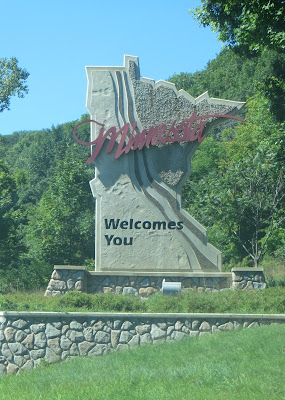 Suffragette
Pin*
Suffragette
Pin*
January
28, 1913 – Women’s suffrage was defeated in the Minn. State Senate
today. Hundreds of women in the galleries and on the floor of the senate saw
the measure lose by a vote of 33 to 30.
The closing moments of the debate on the question were exciting ones. Two senators
made explanations for changing their votes. Senator F. A. Duxbury of Caledonia,
who voted for the measure two years ago, announced his intention of voting
against the measure, saying that he was one of those senators who “had changed
his mind.” Incidentally, Senator Duxbury impugned the motives of the city
newspapers in supporting the measure. He made vague assertions about the papers
supporting the measure because they were controlled by the “big interests.”
Senator W. S. Dwinnell of Minneapolis announced his intention of voting for the
measure this time. He had voted against it two years ago. He said that while he
did not personally believe in woman’s suffrage, he, nevertheless, felt that the
men of the state should be permitted to decide the question for themselves. The
action of Senator Dwinnell was heartily applauded.
Four senators who voted for the measure two years ago, Senators Duxburry,
Cheadle, Olson and C. D. Johnson, voted against it this year. Four other
senators, Dwinnell, Duea, Clague and Fosseen, changed their votes the other
way. The vote against the bill two years ago was 30 to 32. It was 30 to 33 this
year, the extra vote against the measure being cast by Senator Stebbins, who
was absent two years ago.
Rumors were flying around the capitol that the “tonnage tax” club had been used
in influencing senators to vote against the suffrage bill. Two of the senators
whose districts are in the iron range country and who voted for the measure two
years ago were found on the other side this year. They are Senators Cheadle of
Duluth and Johnson of Brainerd.
The women who were present today commanded the respect of every legislator by
their conduct. When the vote was announced they filed out calmly. There was
some disappointment apparent, but the attitude of determination was more
noticeable. The women say that they will now fight all the harder for the
measure. Only once during the debates on the question was there any
disturbance. When Senator Hackney of St. Paul, an opponent of the bill was speaking,
some few in the gallery hissed. Their action was resented by most of the women
near them.
Long before the doors of the senate were opened today women began pouring into
the capitol. They came from all classes. There were women present who work for
a living. There were mothers with their daughters. Very few anti-suffragettes
were present.
Powerful arguments for the cause were presented by Senators Haycraft, Boyle and
Sageng, who was the author of the bill. Senators Hackney and Duxbury spoke
against it.

Senator Ole O. Sangeng, represented Ottertail County1
Senator Haycraft of Medial was the first speaker of the day for the bill.
“No harm is done if this question is submitted to the people and lost,”
Haycroft said. “We are committing a most grievous act if we fail to submit this
question. If the people of the state want woman’s suffrage they should have it.
We are not public guardians. If the people of the state wish even to make a
mistake it is their mistake. The people know as much about this question as
their representatives in the legislature.
Why not submit it now and find out once and for all how the people of
the state stand on this question.
“I believe in woman suffrage. I believe that woman has as much right to vote as
man. It does not lie within my power to withhold the vote for her.”
Sen. Julius E. Haycraft represented Martin and Watonwan Counties2
Senator Hackney of St. Paul was the first speaker for the opposition.
“I am here in defense of the American home,” he said. “Woman suffrage means
just this: It means a doubling of the vote and division of the home.”
It was at this point that there was a hissing in the galleries. Senator
Sullivan objected to the hissing and it was ordered that the galleries would be
cleared if it were not stopped.
“I would never impose upon my wife those duties which men of the state even
loathe to take up,” continued Hackney.
“I don’t believe that the people of my district want to vote for this measure.”
Senator Joseph M. Hackney represented St. Paul3
Minneapolis Morning Tribune; “Minnesota’s Women Are
Denied the Vote. Suffrage Measure Defeated in the State Senate 33 to 30.
Members of Fair Sex Throng Galleries to Hear Debate on Bill. Suffragists Are
Disappointed, but Bravely Plan Another Campaign.”; Jan. 29, 1913; pp. 1 &
2.
*http://heritageramblings.net/wp-content/uploads/2015/01/Votes-for-Women_pin-2.jpg
1http://www.leg.state.mn.us/legdb/media?legid=14625
2http://www.leg.state.mn.us/legdb/fulldetail?ID=13261
3http://www.leg.mn/legdb/media?legid=13140
__________________________________________________________
If you are interested in finding out more about your family history in
Minnesota, I specialize in researching
genealogical and historical records in Minn. and western Wis.,
including: census records, birth records, death certificates, obits, grave site photos,
ship passenger lists, marriage records and declarations of
intent/naturalization records. I will visit locations to research local
history and county records, as well as take photos. Quick turnaround on MHS
records. Both short searches and family
history reports.
Website: TheMemoryQuilt.com ® click on Family History
Contact me at: pjefamilyresearch@gmail.com
















